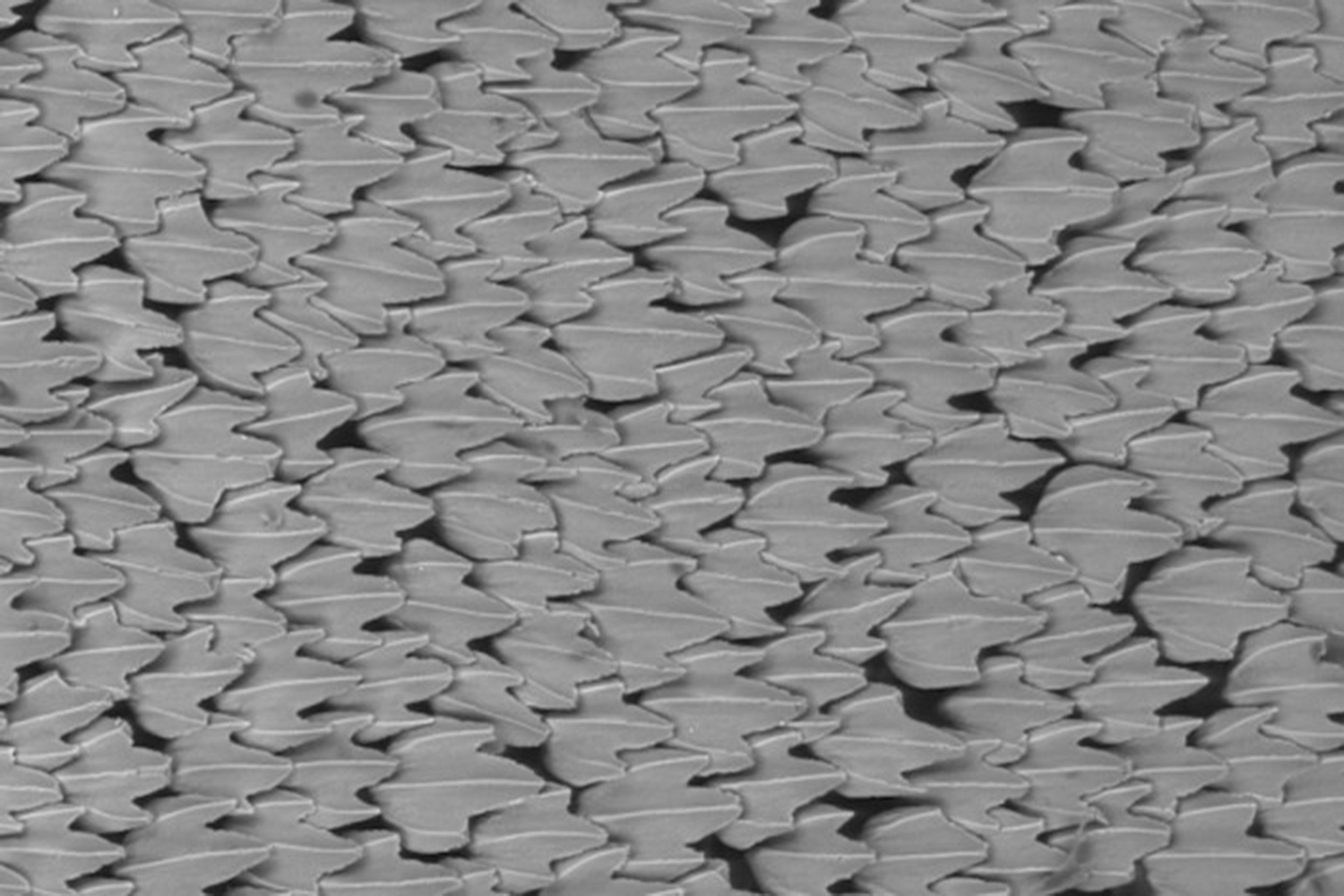
For a lot of engineers, the most reliable source of inspiration comes from the natural world, where often unusual designs come with a stamp of evolutionary approval. In recent years these bio-inspired designs have refined things like bullet trains, camouflage, and mini robots.
Now, in a paper published this week in the journal Journal of the Royal Society Interface, researchers from Harvard University’s School of Engineers and Applied Sciences (SEAS) have demonstrated how sharkskin scales (aka denticles) can help engineers develop better drones, planes, and wind turbines.
“We have demonstrated that shark denticles can be used to greatly improve aerodynamic performance in terms of both enhancing lift and reducing drag,” August Domel, a Ph.D. student at Harvard and co-author of the study, told Digital Trends. “This is important for two reasons. First, it helps us get closer to understanding the complex mechanics and morphology of sharkskin and why sharks have these tiny, tooth-like denticles embedded in their skin. Second, these designs show great potential for applications on many aerial devices such as drones, airplanes, and wind turbines, to improve their performance.”
Some sharks may be able to propel themselves from water with relative grace, but they are far from airborne creatures. Nonetheless, both fish and aerial vehicles have to move through fluid, generate lift, and limit drag.
“The surface of shark skin is covered by small bony scales that function during their swimming to both reduce drag and increase lift and thrust,” George Lauder, a professor of evolutionary biology and co-author of the study, said. “Evolution has operated on the skin of sharks for over 450 million years to arrive at structures that improve swimming performance. So it is natural to use shark scales as inspiration for improving the performance of all types of swimming and flying vehicles.”
The researchers looked specifically at the scales of the world’s fastest shark, the shortfin mako, revealing their trident-like design. They later replicated this design on the surface of a 3D-printed wing, testing 20 different variations to determine the most efficient, and showed how the configurations could decrease drag on drones and small planes, while giving them more airfoil lift.
Moving forward, Lauder and his colleagues will investigate the scales of a variety of shark species to explore the diversity found in this group of fish and how they may be applied to aerial and submersible vehicles.



